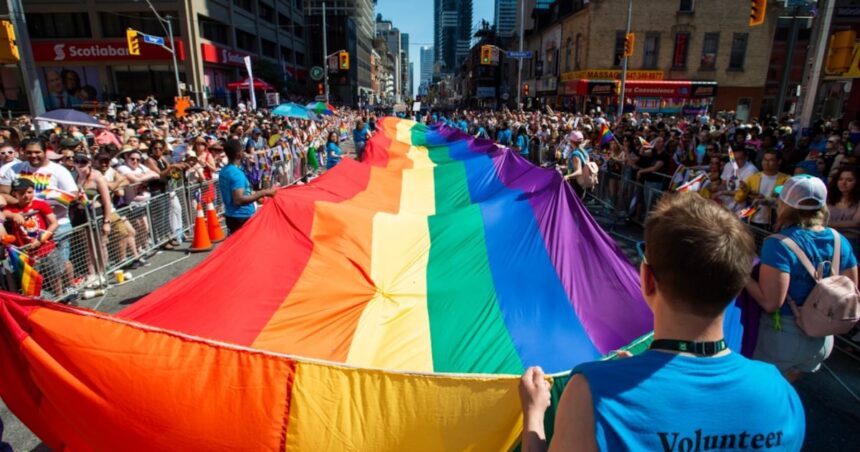In a significant blow to Canada’s largest Pride celebration, tech giant Google and retailer Home Depot have withdrawn their sponsorship from Pride Toronto’s 2024 festivities, adding to a growing list of corporate supporters stepping back from the annual event.
The high-profile departures come at a critical time for Pride Toronto, which has already seen TD Bank, Labatt Breweries, and Crest Canada redirect their support elsewhere or reconsider their involvement entirely. This wave of corporate exits threatens to impact the scale and financial viability of the celebration, scheduled for June 21-30 this year.
Google confirmed its decision to CO24 News, stating they would “not be sponsoring Pride Toronto in 2024” while emphasizing their continued commitment to LGBTQ+ communities through other initiatives. Home Depot similarly confirmed its withdrawal but declined to elaborate on specific reasons behind the decision.
Pride Toronto Executive Director Sherwin Modeste acknowledged the organization’s financial challenges in a recent interview with CO24, revealing that corporate sponsorships account for approximately 40% of the festival’s funding. “We’re facing difficult conversations about what Pride might look like this year,” Modeste said. “These withdrawals will directly affect our ability to provide the programming our community expects.”
The sponsorship exodus appears connected to ongoing controversies surrounding Pride Toronto’s stance on Middle East politics. Last October, the organization faced backlash after posting pro-Palestinian content on social media, which some criticized as one-sided. Further tensions arose when Pride Toronto announced plans to exclude uniformed police officers from marching in the parade, a contentious policy implemented in 2017.
Financial documents obtained by CO24 Business indicate Pride Toronto operated with a budget exceeding $3.2 million in 2023, with corporate sponsorships providing approximately $1.3 million. Analysts suggest the current withdrawals could create a funding gap of several hundred thousand dollars.
The situation mirrors similar challenges facing Pride organizations across North America. Vancouver Pride recently disclosed losing approximately $200,000 in corporate sponsorships after taking political stances on international conflicts, while Montreal Pride has reported increased difficulty securing corporate partnerships.
Toronto City Councillor Alejandra Bravo, speaking to CO24 Politics, expressed concern about the potential impact on the city’s LGBTQ+ community: “Pride is more than a celebration—it’s a vital platform for visibility and advocacy. Corporate withdrawals shouldn’t silence these essential voices.”
Despite these setbacks, several companies including Apple, Microsoft, and Bell Canada have confirmed their continued support for Pride Toronto. The organization has also launched a community fundraising campaign aiming to offset some of the financial losses.
Amidst these developments, the fundamental question emerges: As Pride celebrations navigate increasingly complex political waters while remaining dependent on corporate funding, can they maintain their advocacy mission without compromising their financial sustainability? The answer may reshape the future of LGBTQ+ celebrations not just in Toronto, but across Canada and beyond.










